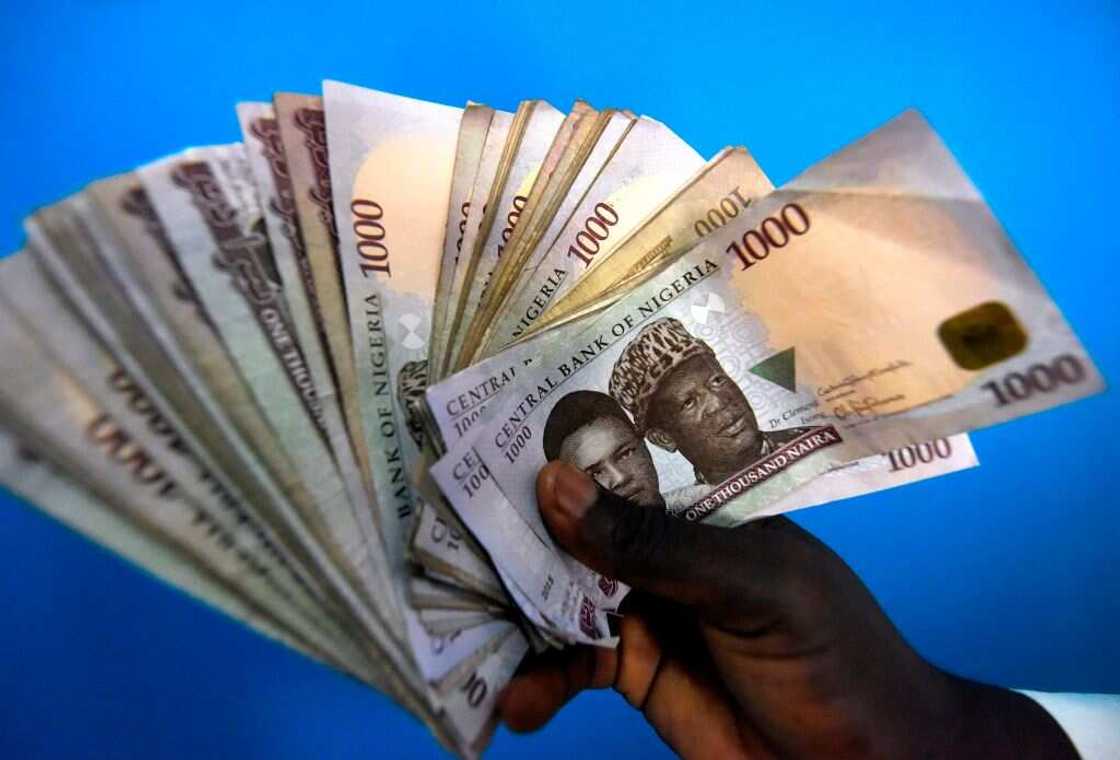Naira Breaks Nine-Month Record, Falls to N800 Per Dollar as CBN Implements Tough FX Rules For Banks
- The naira on Tuesday, July 11, 2o23, depreciated against the US dollar, trading at N800 per dollar
- It also fell by 5.2% at the official I&E window to exchange at N788.42 to a dollar
- The depreciation came as buyers flooded the parallel market in search of the US greenback for travel and other purposes
The Nigerian currency on Tuesday, July 11, 2023, fell to N800 per dollar, the lowest in nine months, as demand for the dollar piled at the parallel market.
The depreciation represents a 0.62% loss in the value of Nigeria’s currency compared to N795, which was the value of one dollar quoted during the trading day on Tuesday, July 11, 2023.

Source: Getty Images
Market dealers reveal reasons for increased dollar demands
BusinessDay reports that black market dealers revealed that the increased demand for the dollar is due to those buying the US greenback for summer holidays, importation, and other needs.
PAY ATTENTION: Сheck out news that is picked exactly for YOU ➡️ find the “Recommended for you” block on the home page and enjoy!
In October 2022, the naira depreciated to N800 per dollar to increase demand by those who stashed it at home during the currency redesign policy of the Central Bank of Nigeria (CBN).
According to data from FMDQ, at the official Investors and Exporters (I&E) window, the naira fell by 5.2%, trading at N788.42 per dollar on Tuesday, July 11, 2023, as against N744.07 quoted on Monday, July 10, 2023.
The CBN abolished segments of the official foreign exchange market to the I&E window, where the willing buyer and willing seller were reintroduced.
Based on the adjustments, the official market rate rose from N463.38 per dollar to N800 per dollar.
Before mid-June 2023, the exchange rate policy concentrated on keeping title (1) changed below the market-clearing rate.
World Bank cautions against multiple exchange rate window
The World Bank said the NAFEX window did not flow on the willing buyer, willing seller model and continued to be managed by the CBN, and did not move along with the market fundamentals.
Per the World Bank report, the foreign exchange market lacked a clear and known price discovery mechanism, primarily because of multiple FX windows serving numerous reasons.
The development continued to frustrate FX supply at the NAFEX window and pushed economic agents into the parallel market to meet their demands, generating arbitrage and rent-seeking opportunities.
Buyers flood black market for dollars as CBN sets strict FX guidelines for Nigerians, banks comply
Legit.ng earlier reported that Many forex buyers have opted for the parallel black market to access dollars because of the zero documentation required to conclude transactions.
The rush for dollars at the black market comes following implementation of a new forex purchase law requiring buyers to present Tax Clearance Certificates to banks and other authorized dealers.
With most buyers not possessing the required tax clearance certificates to buy at the official Investors and Exporters (I&E) window, the demand has now moved to the black market, where buyers are only required to have cash or make transfers.
Source: Legit.ng


